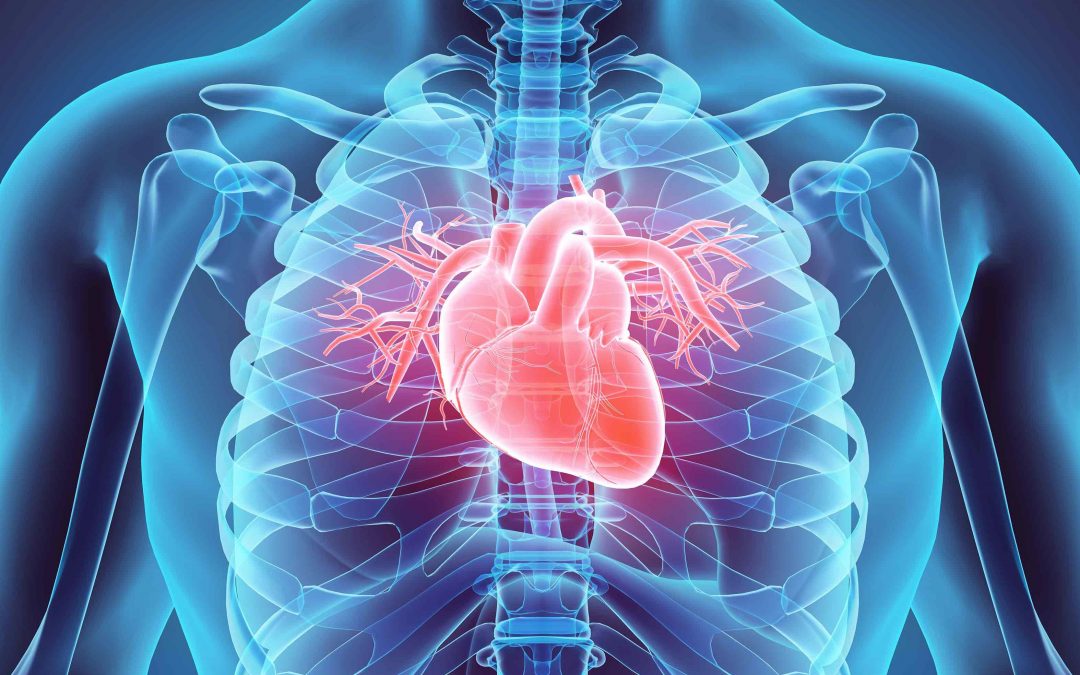Acupuncture for Cardiovascular Disease
Cardiovascular disease is the number 1 killer of women, the leading threat for men, and is more deadly than all forms of cancer combined, according to health organizations. People of all ages and population groups are affected–even children. Childhood obesity puts kids at risk for high blood pressure and heart disease–a risk factor that was previously only seen in adults. There may be symptoms of cardiovascular disease, but in about 64 percent of women who die suddenly of coronary heart disease, there were none. When symptoms do appear they are usually shortness of breath, nausea/vomiting, back or jaw pain, dizziness, lightheadedness or fainting, pain in the lower chest or upper abdomen, and extreme fatigue.
With cardiovascular disease topping out as the leading cause of death worldwide the focus is on prevention to prevent systematic harms by managing high blood pressure and cholesterol, reducing stress, improving sleep quality, maintaining a healthy weight, increased physical activity, and smoking cessation increased. If you are having issues in any of these areas, acupuncture and Oriental medicine can help.
According to acupuncture and Oriental medicine the heart takes responsibility for the circulation of the life force of the body Blood, the basic unit of energy that powers all of life Qi, and the center of consciousness Shen. The Shen embodies our capacity for logic and emotional intelligence. When it is disturbed by injury, trauma, illness, poor diet, lifestyle choices or an accumulation of daily stress, it is said to be ‘disturbed.’ Having a harmonious Shen is of the utmost importance for maintaining heart health.
Often, it is the unbalanced energy produced by the liver that is a big culprit in this condition. Liver energy is, by nature, very active and easily flares upwards in an aggressive, uncontrolled manner. This rising Liver Qi aggravates the heart so that blood is pushed too forcefully against the arterial walls. If this aggression persists for too long a heart attack, kidney damage, and other serious consequences may result.
By integrating acupuncture and Oriental medicine into a heart healthy lifestyle, you can reduce your risk of cardiovascular disease. One obvious way to keep your heart tip-top shape is by maintaining an acceptable blood pressure level. Acupuncture and Oriental medicine provide treatments that will work directly to reduce high blood pressure and mitigate the symptoms of stress.
One way Oriental medicine can increase your physical activity is through the use of tai chi. Tai chi is a gentle exercise that keeps you moving and helps keep stress at bay. More like a slow, rhythmic dance tai chi is designed to encourage the body and mind into a state of calm. The routines involve continuous motions that are not difficult to learn and are gentle enough for any age group to engage in.
Come in for a consultation to see how acupuncture and Oriental medicine can benefit your heart and help you to live a long, healthy life.

Reduce Your High Blood Pressure
High blood pressure, or hypertension, is a common disease making one out of three hearts work harder to pump oxygen-rich blood through the arteries. High blood pressure makes the heart work harder increasing its oxygen demands. Excessive pressure can lead to an enlarged heart (cardiomegaly), and damage blood vessels in the kidneys and brain.
Your emotional state, time of day, alcohol, caffeine, nicotine, medication, thyroid problems, and obstructive sleep apnea are just some factors that can raise your blood pressure from the average reading of 120/80 mmHg to hypertensive levels of 140/90 mmHg or above. Risk factors for developing chronic hypertension include excessive alcohol consumption, a high salt and low potassium diet, and an inactive lifestyle.
It is very common for a person with hypertension to not experience any symptoms. If you do experience symptoms they may include headaches, shortness of breath, nosebleeds, fatigue, confusion, vision problems, and blood in the urine.
A German study published in the June 2007 issue of Circulation found that acupuncture significantly lowers both systolic and diastolic blood pressure. The top number in a blood pressure reading is systolic and refers to the force of blood flow when the heart is actively beating. The bottom figure is diastolic and measures the strength of flow when the heart is at rest. The extent of the blood pressure reductions by acupuncture treatments was comparable to those seen with anti-hypertensive medication or aggressive lifestyle changes, including radical salt restrictions. By the end of the 6 weeks, 24-hour ambulatory systolic and diastolic blood pressures were significantly reduced from baseline in the acupuncture-treated patients while there were no significant changes seen in the sham acupuncture group.
According to acupuncture and Oriental medicine the presence of dampness in the body can cause problems with the digestive system, low energy, swelling, and weight gain. When the stomach and spleen weaken, this condition has the potential to obstruct the body mechanics responsible for regulating blood pressure. Acupuncture can assist the body in removing excess body fluids and help normalize blood lipid levels.
The liver is responsible for the smooth flow of Qi and when out of balance, Qi tends to rush upwards and cause symptoms such as headaches, red eyes, and shouting. When liver yang Qi rises uncontrollably, it can initiate the symptoms of high blood pressure. An acupuncture treatment is then needed to calm the liver Qi and stabilize the emotions of rage, frustration, and anger that can negatively impact blood pressure.
Source: Flachskampf FA, Gallasch J, Gefeller O, Gan J, Mao J, Pfahlberg AB, Wortmann A, Klinghammer L, Pflederer W, Daniel WG. “Randomized trial of acupuncture to lower blood pressure.” Circulation. 2007 Jun 19;115(24):3121-9. Epub 2007 Jun 4.
5 Ways Acupuncture Helps Heart Health
1. Manage High Blood Pressure
Acupuncture has been found to be particularly helpful in lowering blood pressure. By applying acupuncture needles at specific sites along the wrist, inside the forearm or in the leg, researchers at the Susan Samueli Center for Integrative Medicine at the University of California, Irvine, were able to stimulate the release of opioids, which decreases the heart’s activity and thus its need for oxygen. This, in turn, lowers blood pressure.
2. Maintain a Healthy Weight
Acupuncture and Oriental medicine are an excellent adjunctive tool when it comes to losing weight. They can help to energize the body, maximize the absorption of nutrients, regulate elimination, control overeating, suppress the appetite, and reduce anxiety.
3. Reduce Stress
Numerous studies have demonstrated the substantial benefits of acupuncture in the treatment of stress, anxiety, and mental health. In addition to acupuncture, Oriental medicine offers many techniques that can be integrated into your life to keep stress in check.
4. Improve Sleep Quality
Poor sleep has been linked with high blood pressure, atherosclerosis, heart failure, heart attacks, stroke, diabetes, and obesity. Acupuncture has shown great success treating a wide array of sleep problems without any of the side effects of prescription or over-the-counter sleep aids. Acupuncture treatments focus on the root disharmony within the body, assisting it to achieve better sleep and an overall improvement of physical and mental health.
5. Smoking Cessation
Smoking is a major cause of coronary artery disease. In fact, about 20 percent of all deaths from heart disease are directly related to cigarette smoking. Acupuncture has shown to be an effective treatment for smoking cessation. Treatments focus on jitters, cravings, irritability, and restlessness–symptoms that people commonly complain about when they quit. It also aids in relaxation and detoxification.

